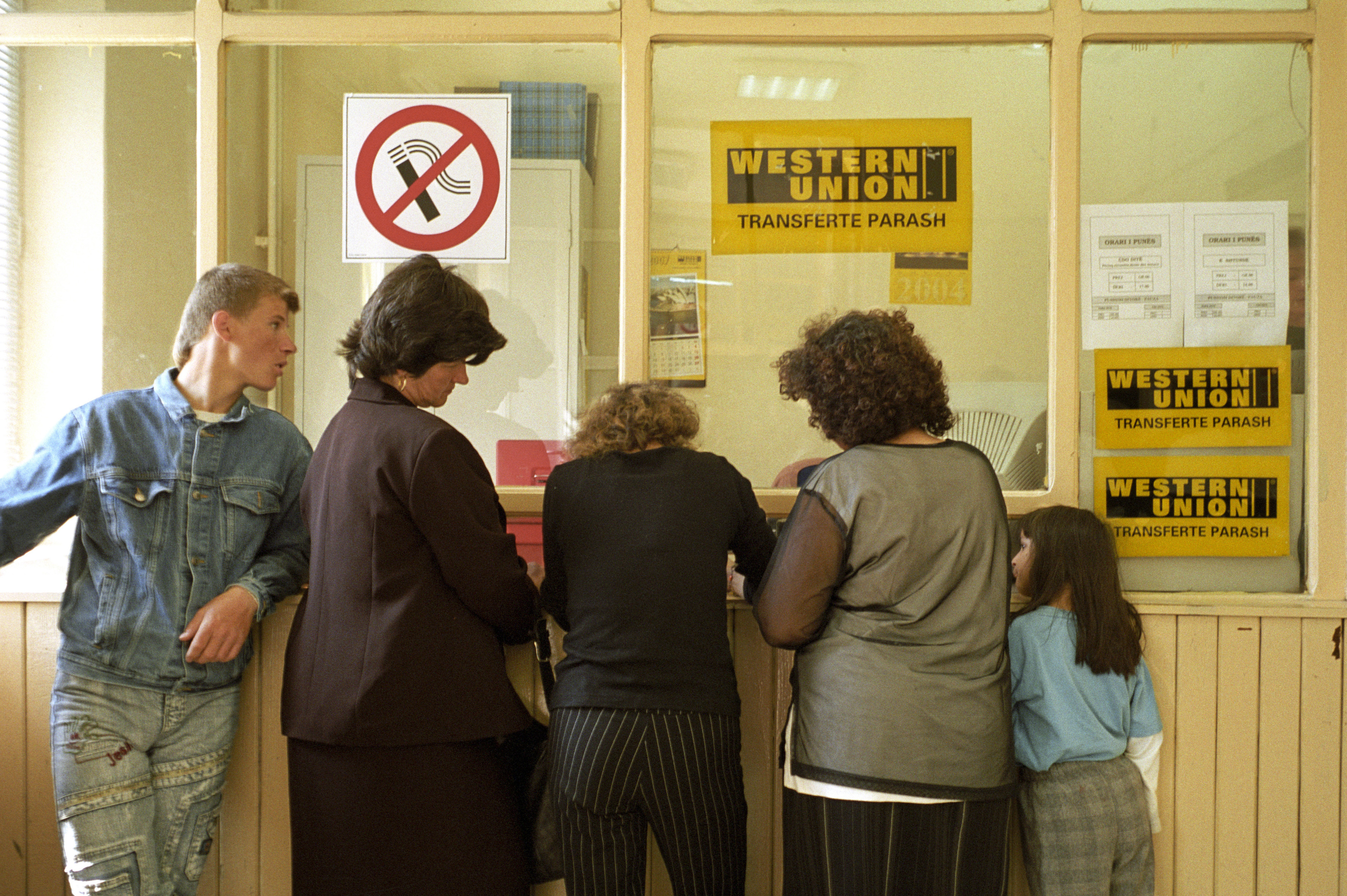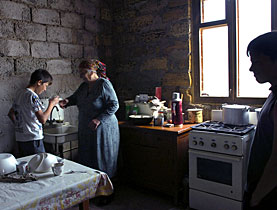Billions sent home from foreign workers’ wages

Foreign workers in Switzerland sent home an estimated $5 billion (SFr4.8 billion) in remittances to their families last year, a World Bank report has revealed.
Despite the global economic downturn, remittances to developing countries remain a resilient source of external financing.
A World Bank study ranked Switzerland behind the United States and Saudi Arabia as the third largest country in 2009 for transfer payments; foreign workers in Switzerland – including those who cross the border each day – transferred $19.6 billion back home.
Of this, $5 billion was sent home in remittances to families to meet daily needs and other expenditures – double Switzerland’s official aid budget – up from $4.1 billion in 2007.
Around 22 per cent of the 7.8 million Swiss population are foreign. Two-thirds are from the European Union and the European Free Trade Association, and there are sizeable communities from the Balkans, Asia, Latin America and Africa – both official and unofficial.
Remittance flows to developing countries are expected to reach $325 billion by the end of this year, and $440 billion worldwide, the World Bank’s Migration and Remittances Factbook 2011 reported this week.
World Bank experts predict a steady increase in remittances sent by foreign workers to poor countries over the next two years, possibly exceeding $374 billion, triple the amount of overseas development aid. This marks a healthy recovery after a five per cent drop in 2009 to $307 billion.
Hard to measure
Mathias Lerch, a demography specialist at Geneva University, felt the resilience of remittances was not unusual, as migrant workers had a natural solidarity with their families, even in hard times.
“Even if a migrant loses his job in Switzerland, they still continue to send money as they know the needs are much more important in their country of origin,” he told swissinfo.ch.
Despite these impressive figures, measuring the real impact of remittances is hard.
“It’s a very difficult task – first measuring the actual flow itself, as there are lots of methodological differences and most calculations are extrapolations,” said Lerch.
Experts say the true size of the flows could be as much as 50 per cent higher if unrecorded remittances moving through formal or informal channels were included.
Eighty per cent of remittances are thought to pass informally between Switzerland and the Balkans states, most commonly carried by migrants, friends or acquaintances.
Education, health and housing
Not all the money goes to the most needy, however. It can also create dependency, especially among states with high emigration rates, and some is wasted on consumer goods and not invested properly.
Yet there is more or less consensus on the positive impact of stable remittance payments in lifting people out of poverty, said Lerch.
“In Serbia it has really had a big impact on the living standards of the elderly,” he noted.
Development experts are still divided over the impact of remittances in countries of origin, however.
The World Bank and regional banks always think migrants’ money should finance businesses, said Barbara Affolter, a migration programme officer at the Swiss Agency for Development and Cooperation (SDC).
“But if you look closely, remittances are often used for children’s education, health and housing…these are part of the Millennium Development Goals and are essential for human development.”
Emerging trends
Trends are emerging that may maximize the benefits of remittances. Many countries are becoming increasingly aware of the role and potential of their nationals abroad, and are considering things like diaspora bonds and the securitisation of future remittances.
New technologies, such as mobile phones and online banking, and competition between money transfer companies, is also making exchanging money easier, safer and cheaper. However, mobile money transfer services remain slow to cross borders.
Lowering transfer costs helps migrants, said Affolter, but what is much more important is reducing the costs of migration.
A recent study of low-skilled Bangladeshi migrants who worked for three years in the Middle East found that it took two years for them to pay back fees to recruitment agencies for their plane tickets and for other debts.
“What remains at the end of the month to send home is often nothing,” said the programme officer. “Only when you resolve the question of the costs of migration can you then get results on the remittances people can send home.”
The population of Switzerland currently stands at 7, 874, 088. The resident foreign population increased by 2.2 per cent last year and is now 1,802,300 (22%).
Almost two-thirds are from member countries of the European Union and the European Free Trade Association. Italians form the largest group of foreigners (293,933), followed by Germans (265,944), Portuguese (213,232), Serbians and Montenegrins (187,554), French (94,814), Turkish (73,275), Spanish (65,687), Macedonians (60,293), Austrians (37,973), Bosnians (37,397), British (37,240), Croatians (35,259), Sri Lankans (30,746) and Americans (20,216).
More than a fifth (20.7 per cent) of the total were born in Switzerland and belong to the second and third generation of foreigners in the country.
Since the Second World War, about two million people have immigrated to Switzerland, or are the descendents of immigrants.
More than 200 million people live outside their countries of birth. One-tenth of Swiss nationals live abroad.
(Source: Federal Statistics Office)
The Fourth Global Forum on Migration and Development took place in Puerto Vallarta, Mexico on November 10-11, 2010, attended by representatives from 150 states.
Eduard Gnesa, special envoy for international cooperation on migration issues, headed a Swiss delegation in Mexico.
In 2011 Switzerland will chair the Global Forum on Migration and Development and will oversee the overall evaluation of the forum’s activities over the past four years.

In compliance with the JTI standards
More: SWI swissinfo.ch certified by the Journalism Trust Initiative















You can find an overview of ongoing debates with our journalists here . Please join us!
If you want to start a conversation about a topic raised in this article or want to report factual errors, email us at english@swissinfo.ch.